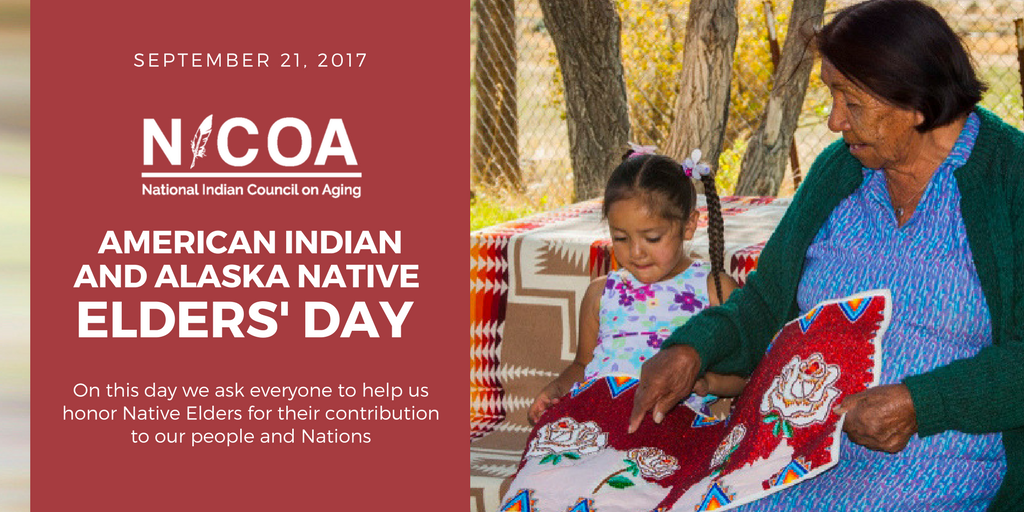This post originally appeared on the NICOA blog.

The National Indian Council on Aging (NICOA) is closed today, September 21st, in observance and celebration of NICOA American Indian and Alaska Native Elders’ Day. This day is important to Indian Country because September 21, 1976 is recognized as the day that NICOA was founded by Tribal Leaders, community advocates, and American Indian and Alaska Native (AI/AN) Elders.
How It All Started
The first National Indian Conference on Aging was sponsored by the National Tribal Chairman’s Association (NTCA) in Phoenix, Arizona on June 15-17, 1976. Close to 1,500 AI/AN people representing 171 tribes came together to speak of their needs and present recommendations for action to improve the quality of their lives. The meeting was coordinated by the National Tribal Chairman’s Association and led by President Wendell Chino.
In his address to the conference attendees, Mr. Chino spoke at length about the history of contributions the AI/AN Elders have given to this great country. He consistently reminded AI/ANs and the policymakers that AI/ANs have a unique status as they are specifically mentioned in the US constitution.
This relationship is explicitly documented in a historical account by Robert J. Miller author of Native America, Discovered and Conquered: Thomas Jefferson, Lewis & Clark, and Manifest Destiny, where he explains the following:
American Indian tribes have played a major role in the development and history of the United States and have engaged in official, diplomatic governmental relations with other sovereign governments from the first moment Europeans stepped foot on this continent. Indian tribes have been a part of the day to day political life of the United States and continue to have an important role in American life today. Tribes continue to have a government to government relationship with the United States and they continue to be sovereign governments with primary control and jurisdiction over their citizens and their territories. It is no surprise, then, that the relationship between Indian people, tribal governments and the United States is addressed in the United States Constitution.
The first National Indian Conference on Aging also led to the creation of NICOA, collectively tribal leaders recognized a need for a national organization to advocate for AI/AN Elders. To this day NICOA carries on the mission to advocate for improved comprehensive health, social services and economic wellbeing for AI/AN Elders.
How We Are Celebrating
September 21st is NICOA’s Founding Day and we honor this day as American Indian and Alaska Native Elders’ Day. This entire month we encourage our staff, community members, adult children, grandchildren, and tribal leaders to support our mission and help us honor Native Elders for their contribution to our people and Nations. This is an opportune time to hug your Elder and to take time to listen to their personal stories and the stories of our people.
Some great ideas we will be using to celebrate this day come from the National Indigenous Elder Justice Initiative’s poster titled “Ways to Love Our Elders”. Some our favorites include:
- Tell them you love them
- Have them teach you traditions
- Cook their favorite food
- Talk with them
- Pray with them
- Respect their history
- Ask about their childhood
- Learn to make traditional foods
- Sit with them
- Learn native words
- Praise and encourage their skills
- Let them know they are valued
You can also join in on the discussion and share what you will be doing to honor your Elders below; please share as many ideas as you would like. NICOA staff have already added what they will be doing, and we hope you add yours.
Celebrate our AI/AN Elders – Aging is not done alone — It takes a village to age with dignity.
The opinions expressed in this article are those of the author and do not necessarily reflect those of the Diverse Elders Coalition.

